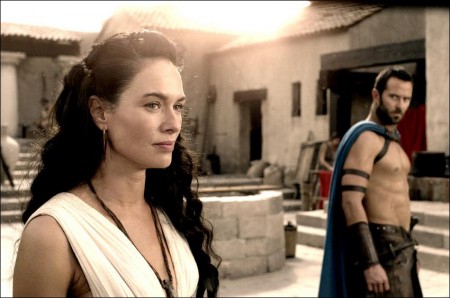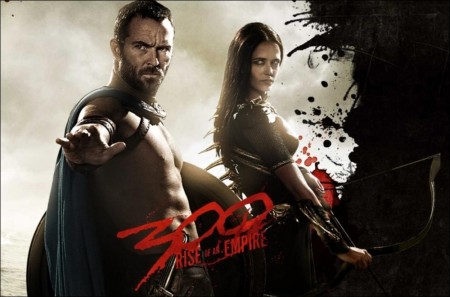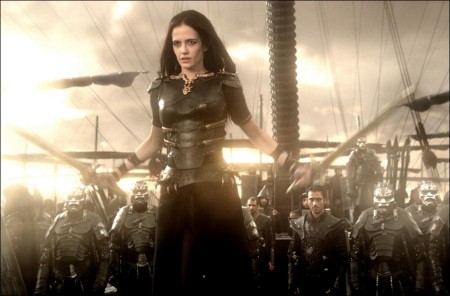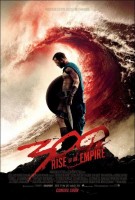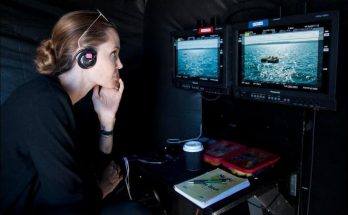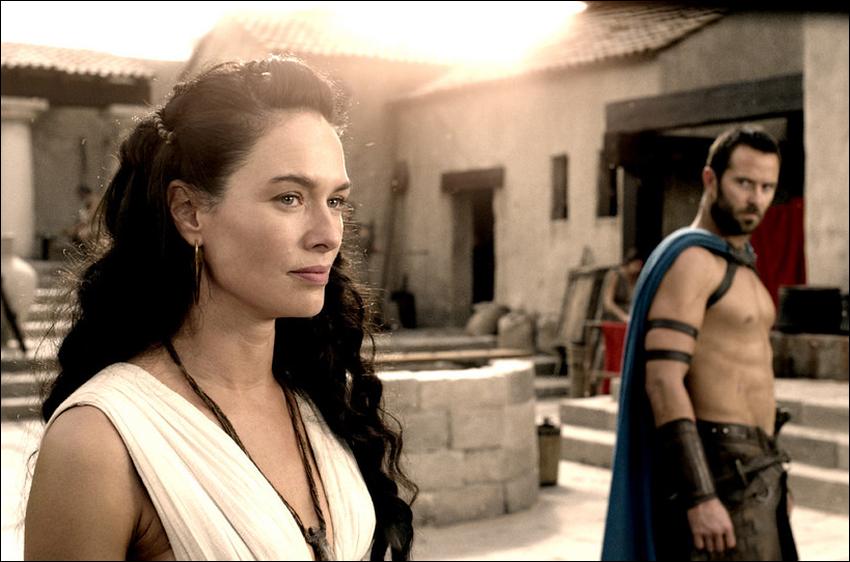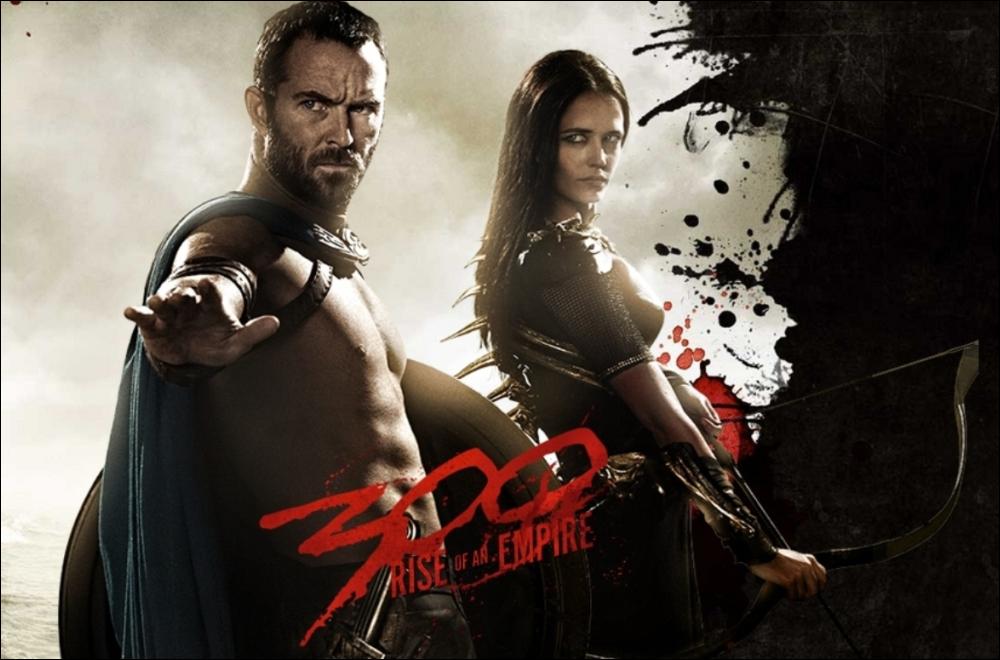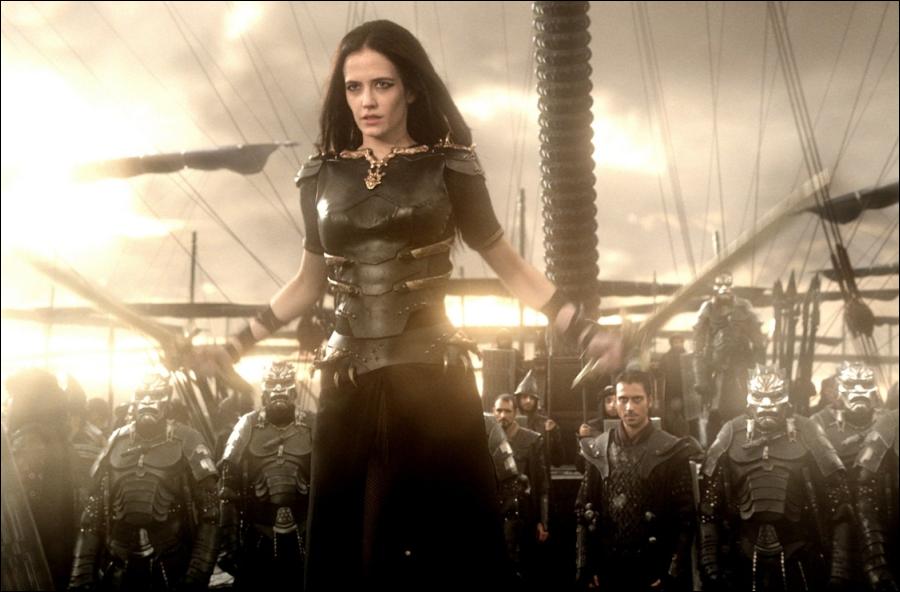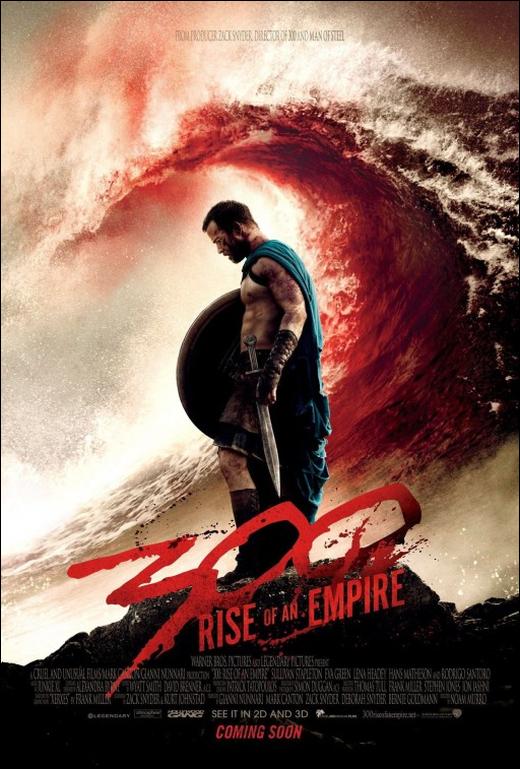After its victory over Leonidas’ 300, the Persian Army under the command of Xerxes marches towards the major Greek city-states. The Democratic city of Athens, first on the path of Xerxes’ army, bases its strength on its fleet, led by admiral Themistocles. Themistocles is forced to an unwilling alliance with the traditional rival of Athens, oligarchic Sparta whose might lies with its superior infantry troops. But Xerxes still reigns supreme in numbers over sea and land.
Based on Frank Miller’s latest graphic novel Xerxes and told in the breathtaking visual style of the blockbuster 300, this new chapter of the epic saga takes the action to a fresh battlefield–on the sea–as Greek general Themistokles (Sullivan Stapleton) attempts to unite all of Greece by leading the charge that will change the course of the war. 300: Rise of an Empire pits Themistokles against the massive invading Persian forces led by mortal-turned-god Xerxes (Rodrigo Santoro), and Artemesia (Eva Green), vengeful commander of the Persian navy.
The film centers on Themistocles and Artemisia I of Caria, as well as Xerxes I of Persia. The Battle of Artemisium was a naval engagement, concurrent with the battle of Thermopylae, and was fought between an alliance of Greek city-states and the Persian Empire in September 480 BC, in the straits between the mainland and the northern tip of the island of Euboea (modern Evvia).
The film will probably also focus, in part, on the Battle of Salamis, in which Artemisia played a major role, as well as possibly the Battle of Marathon. The Battle of Salamis (home of the mythical hero Ajax) was fought after the Persian Empire had advanced into southern Greece and occupied Athens.
About the Story
At the end of the Battle of Thermopylae, Leonidas I and his legion of 300 lie dead at Thermopylae. Xerxes I then beheads King Leonidas, symbolizing his victory over the Spartans
Queen Gorgo of Sparta tells her men about the Battle of Marathon, in which King Darius I of Persia was killed by General Themistocles of Athens 10 years earlier. Darius’ son, Xerxes, witnesses his father’s death, and is advised to not continue the war, since “only the gods could defeat the Greeks”. Darius’ naval commander, Artemisia, claims that Darius’ last words were in fact a challenge and sends Xerxes on a journey through the desert. Xerxes finally reaches a cave and bathes in an otherworldly liquid, emerging as the “God-King”. He returns to Persia and declares war on Greece.
As Xerxes’ forces advance towards Thermopylae, Themistocles meets with the council and convinces them to provide him with a fleet to engage the Persians at sea. Themistocles then travels to Sparta to ask King Leonidas for help, but is informed by Dilios that Leonidas is consulting the Oracle, and Gorgo is reluctant to side with Athens. Themistocles later reunites with his old friend Scyllas, who infiltrated the Persian troops and learned Artemisia was born Greek, but defected to Persia as her family was raped and murdered by Greek hoplites and she was taken as a sex slave, who left her for dead in the streets. She was rescued and adopted by the Persians. Her lust for vengeance gained the attention of King Darius and he made her a naval commander after she killed many of his enemies. Themistocles also learns that Leonidas has marched to fight the Persians with only 300 men.
Themistocles leads his men, which include Scyllas, Scyllas’ son Calisto and Themistocles’ right-hand man Aeskylos to the Aegean Sea, starting the Battle of Artemisium. They ram their ships into the Persian ships, charge them, slaughtering several soldiers before retreating from the sinking Persian ships. The following day, the Greeks feign a retreat and lead a group of Persian ships into a crevice, where they become stuck. The Greeks charge the Persian ships from the cliffs above and kill more Persians. Impressed with Themistocles’ skills, Artemisia brings him onto her ship where she has sex with him in an attempt to convince him to join the Persians as her second-in-command. He refuses, causing her to push him aside and swear revenge.
The Persians spill tar into the sea and send suicide bombers to swim to and board the Greek ships with their flame bombs. Artemisia and her men fire flaming arrows and torches to ignite the tar, but an Athenian manages to kill one of the Persians, who falls into the tar carrying a torch, causing ships from both sides to explode. Themistocles is thrown into the sea by an explosion and nearly drowns before being rescued by Aeskylos, and stands by Scyllas’ side as he succumbs to his injuries. Believing Themistocles to be dead, Artemisia and her forces withdraw.
Daxos, an Arcadian general, tells Themistocles that Leonidas and the his 300 men have been killed after Ephialtes betrayed the Greeks to Xerxes. Themistocles returns to Athens and confronts Ephialtes. The deformed Spartan traitor reveals that Xerxes plans to attack and burn Athens to the ground. Ephialites is regretful of his actions, and is welcoming death. Themistocles spares him instead, so he can warn Xerxes that the Greek forces are gathering at Salamis. He then visits Gorgo in Sparta while she is mourning Leonidas’ death to ask for her help, but she is too overcome with grief. Before leaving, Themistocles returns Leonidas’ sword, which had been delivered to him by Ephialtes under Xerxes’s orders, and urges Gorgo to avenge Leonidas.
In Athens, Xerxes’ army is laying waste when Ephialtes arrives to deliver Themistocles’ message. Upon learning he is alive, Artemisia leaves to ready her entire navy for battle. Xerxes suggests a more cautious plan but she still leaves for battle against Xerxes’ objection. The Greek ships crash into the Persians ships, and the two armies battle, beginning the decisive Battle of Salamis. Themistocles and Artemisia fight, which ends in a stalemate with both receiving injuries.
At this moment Gorgo, who had been narrating the tale to the Spartans, arrives at the battle along with ships from numerous Greek city states including Delphi, Thebes, Olympia, Arcadia, and Sparta, all of them uniting against the surrounded Persians. Daxos leads the Arcadian army while Themistocles urges Artemisia to surrender. Xerxes, watching the battle from a cliff, turns his back on her while the Greek ships advance. Artemisia tries to kill Themistocles one last time but is killed as he stabs her through the stomach. Themistocles and Gorgo take a moment to silently acknowledge one another’s alliance as the remaining Persians charge while Dilios leads the assault. The three then charge at the opposing Persians with the whole army of Spartans.
300: Rise of an Empire
Directed by: Noam Murro
Starring: Eva Green, Rodrigo Santoro, Sullivan Stapleton, Mark Killeen, Jack O’Connell, Lena Headey
Screenplay by: Kurt Johnstad, Frank Miller, Zack Snyder
Production Design by: Patrick Tatopoulos
Cinematography by: Simon Duggan
Film Editing by: David Brenner, Wyatt Smith
Costume Design by: Christine Bieselin Clark, Alexandra Byrne
Set Decoration by: Jenny Oman, Simon Wakefield
Music by: Junkie XL
MPAA Rating: R for strong sustained sequences of stylized bloody violence throughout, a sex scene, nudity and some language.
Studio: Warner Bros. Pictures
Release Date: March 7, 2014
Visits: 106
